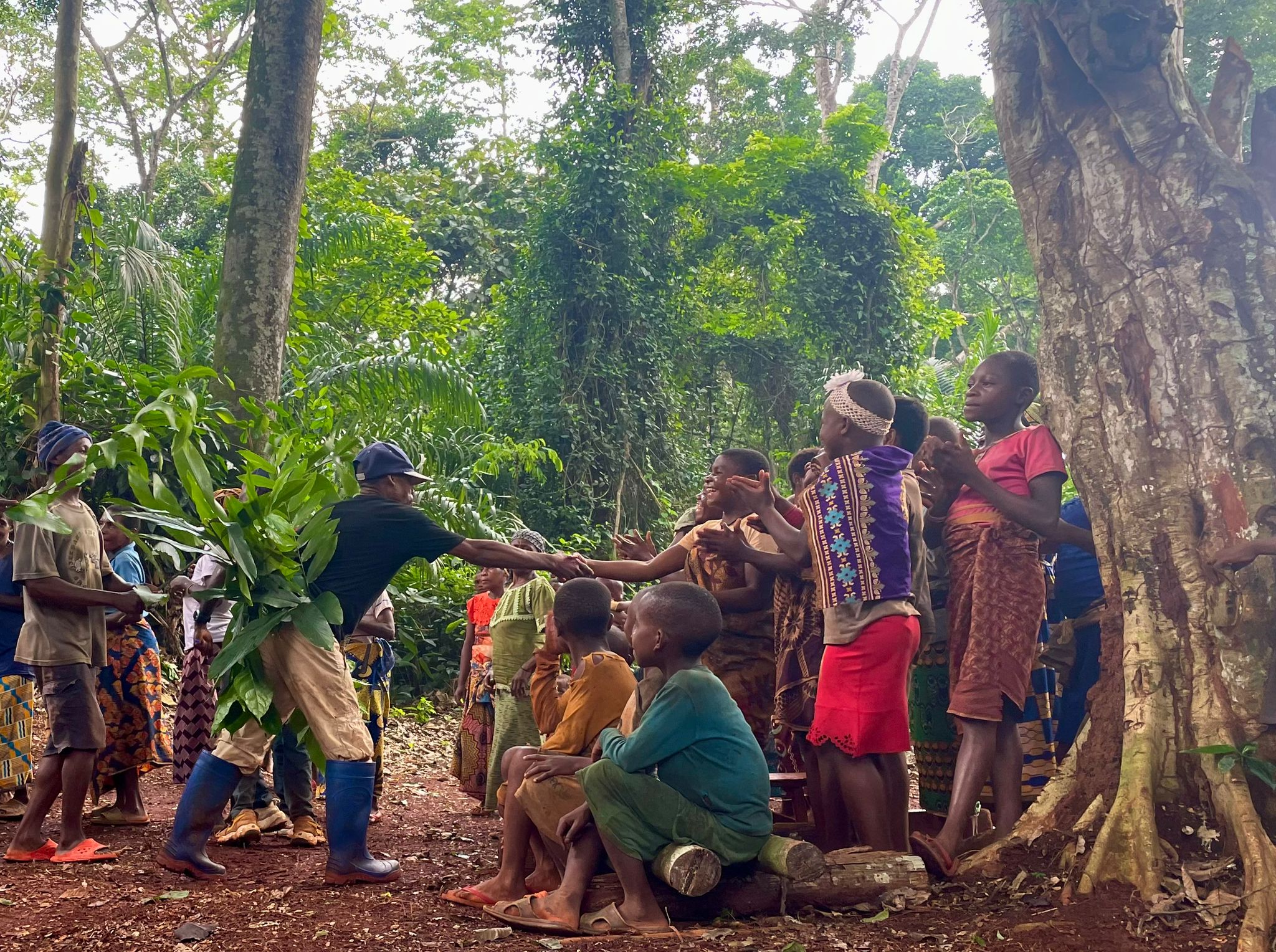Securing land and advancing sustainable forest management for Indigenous Peoples and local communities
Ongoing
From:
01/08/2025
To:
31/07/2030
Partners:
Association Sanguia Baka Buma'a Kpode (ASBABUK)
Bagyeli's Cultural and Development Association (BACUDA)
Associates:
Fiscal Sponsor: Green Development Advocates (GDA)
Stakeholders:
Approximately 70,000 Indigenous Peoples and Local Communities in southeast and south Cameroon.
ASBABUK (Association Sanguia Baka Buma’a Kpode) and BACUDA (Bagyéli’s Cultural & Development Association) are strengthening and securing land and forest rights of Indigenous Peoples and local communities. Their efforts will focus on protected areas and other forest zones in Cameroon’s southeast and south regions, which are home to the Indigenous Baka, Bagyeli, and Bakola Peoples.
This project marks an important milestone: for the first time in Cameroon’s history, Indigenous organisations are directly accessing substantial funding to advance their own initiatives to secure and strengthen Indigenous forest rights in Cameroon. The project aims to benefit forest territories home to 70,000 members of Indigenous Peoples and local communities.
To read a brief overview of Cameroon, click here.
For a timeline of land and forest rights in Cameroon, click here.
Project Overview
Cameroon is one of the six countries that make up the Congo Basin, the second-largest tropical forest in the world after the Amazon. This tropical forest holds vast natural resources and unique biodiversity, such as lowland gorillas. As the world’s largest remaining carbon sink, it is critical for mitigating climate change at both regional and global levels.
In Cameroon, various Indigenous Peoples, including the Baka, Bagyeli, and Bakola, live in and care for the Congo Basin. They subsist on small-scale hunting, gathering, and farming and have lived in harmony with this forest for centuries.
However, their lives, livelihoods, and territories are at great risk.
Growing natural resource exploitation—through railway construction, agro-industrial expansion, and mining projects—is severely disrupting the lives and territories of the peoples who depend on these forests. Forests are being cut down, and communities are being disposed off their lands.
Another challenge faced by Indigenous Peoples and local communities is the establishment of national parks and reserves, many of which overlap with their ancestral forestlands. These protected areas have often been created without communities’ free, prior, and informed consent, leading to their displacement and eroding their lives and cultures.

celebrations at the project's launch
ASBABUK and BACUDA, with Tenure Facility’s support, are addressing these challenges through this project, which will strengthen and advance the land, forest, and territorial rights of the Baka, Bagyeli, and Bakola Peoples.
The project promotes the following strategic actions:
- Advance land and forest management rights in four protected areas by implementing an existing memorandum of understanding between authorities and Indigenous communities that permits ancestral land use, and by initiating dialogue with key stakeholders to enable Indigenous access to resource areas for traditional practices
- Revitalise forested territories by promoting traditional forest management practices, supporting women to collect and market non-timber forest products, and establishing community forests and community-managed protected areas
- Develop and pilot community-level land and forest recovery mechanisms
- Establish agroecology initiatives that sustain livelihoods while protecting biodiversity
- Facilitate community access to land rights by helping communities to obtain certificates of possession for customary lands and encouraging them to design community development plans
Grounded in consultations to ensure free, prior, and informed consent, this five-year project sets the stage for unity, resilience, and lasting change.